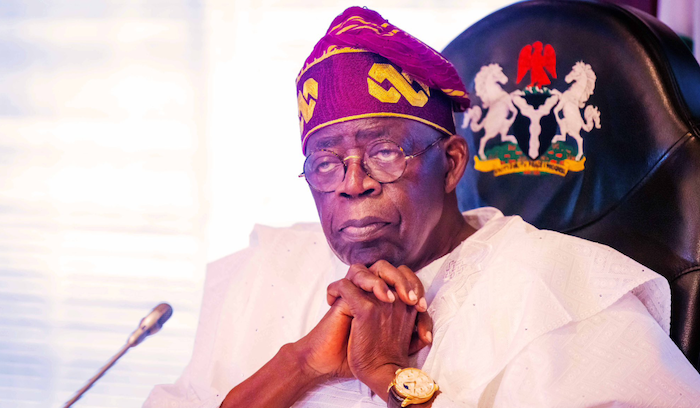Headline
PDP slams Tinubu’s new loan request, warns of economic consequences

The Peoples Democratic Party (PDP) has strongly criticized President Bola Ahmed Tinubu’s latest request to borrow $21.5 million and ¥15 billion, along with a €65 million grant from international financial institutions.
The opposition party described the move as both contradictory and dangerous to Nigeria’s economic stability.
The loan request, which was transmitted to the National Assembly last Tuesday, seeks legislative approval as part of the Medium-Term Expenditure Framework (MTEF) for the 2025–2026 fiscal period.
However, many Nigerians have criticised the loan request.
Some critics, including economists and civic advocates, have questioned the necessity of external borrowing in the aftermath of the fuel subsidy removal, a policy that was expected to free up resources for domestic development.
They argue that the subsidy removal should have created fiscal space to meet the nation’s financial needs without resorting to additional borrowing. Some others are concerned about Nigeria’s rising debt profile and the long-term implications for future generations.
At a press conference on Wednesday, the PDP National Publicity Secretary, Debo Ologunagba, questioned both the rationale for fresh borrowing and the earlier removal of fuel subsidy, which the government had claimed would ease fiscal pressure and reduce reliance on loans.
READ ALSO: National Assembly asked to reject Tinubu’s fresh $24b loan request
“Only last week, the president had just asked for and requested for a $24.5 billion loan. What they said that is actually very annoying was that they’re going to use that money to cushion the effect of subsidy removal. We were here when they said to us, ‘we’re going remove subsidies, therefore, we will not borrow anymore. We’re not going to put subsidy on petrol, and therefore, there’ll be more money to provide cushioning policies and programmes, to take away the pain of the subsidy.” So the question is – where is the money if indeed you’re going to borrow money to cushion the effect of subsidy, two years after?” he said.
Mr Ologunagba added that the policy inconsistency has left many Nigerians suffering under worsening economic conditions.
“Many people have died on account of the irresponsibility of this government, because of their impoverishment and that’s why we’re here. So they said that part of that money will be used to take care of pensioners. Pension is a contributory scheme. So where’s the money?” he said.
The PDP spokesperson also criticised the National Assembly, accusing it of failing in its oversight duties.
He insisted that the opposition is not merely criticising for political gain but seeking better governance.
“The National Assembly should interrogate, which they’re not doing, of course, they have declared that whatever the president says, is okay by them, and we have seen it. These are the things that Nigerians are going to challenge in 2027.
“One thing is clear, and Nigerians should recognise that, we’re not in opposition to just criticise. It is better for this country to do well, so that all of us can benefit from it. It is not in our interest that the government fails, but the government must be ready to listen to alternative views that could help us build a country that all of us can have what we call the pursuit of happiness,” Mr Ologunagba said.
According to Nigeria’s Debt Management Office (DMO), as of 31 December 2024, Nigeria’s total public debt stood at N144.7 trillion (approximately $94.2 billion). About 51.4 per cent of the total (N74.4 trillion) is domestic debt while 48.6 per cent (N70.3 trillion) is external debt.
The rising debt has resulted in increased debt servicing costs. In 2023, Nigeria spent N7.8 trillion on debt servicing, a 121 per cent increase when compared to N3.52 trillion in the previous year.
The amount spent on debt servicing rose to N13.12 trillion in 2024, a 68 per cent increase from the 2023 figure. These high debt servicing costs means less funds for important sectors such as infrastructure and social services, potentially hindering economic growth and development.
Government’s justification
The Federal Ministry of Finance defended the borrowing plan last Wednesday. The ministry’s Director of Information and Public Relations, Mohammed Manga, said the loans are part of a strategic, structured approach aligned with Nigeria’s economic priorities.
He said the funds are earmarked for the 2025–2026 fiscal period and are part of the Medium-Term Expenditure Framework (MTEF).
MTEF is a planning and budgeting tool that helps the government manage its finances over a medium-term period, typically three years.
Mr Manga explained that the funds will be sourced from reputable development partners like World Bank, African Development Bank, French Development Agency, European Investment Bank, Japan International Cooperation Agency (JICA), China EximBank and Islamic Development Bank.
He said the funds will be used to support several infrastructure and security initiatives of the government including expansion and upgrade of power grids and transmission lines, development of irrigation systems to boost food security, installation of a nationwide fibre optics network, procurement of fighter jets to strengthen national security and enhancement of rail and road infrastructure across geopolitical zones.
The director noted that the projects will span multiple states, including Abia, Bauchi, Borno, Gombe, Kaduna, Lagos, Niger, Oyo, Sokoto, and Yobe, reflecting a national development agenda.






















